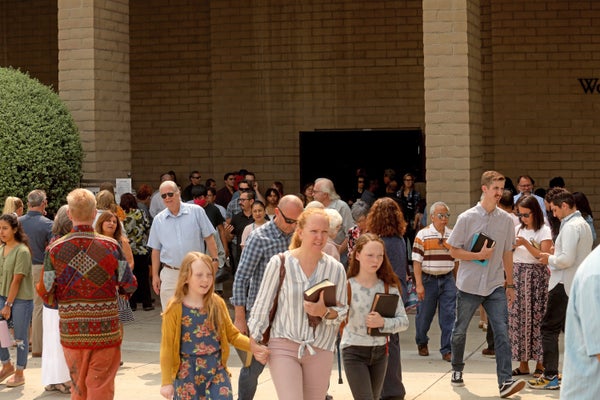People turn to religion for comfort and hope in times of crisis and uncertainty, and March 2020 was one of those times. Americans experienced a spike in distress during this tumultuous period, but is it possible that religion could have spared some Americans from that distress?
To measure the impact of religion during the early days of the COVID pandemic in the United States, I analyzed data from about 12,000 Americans surveyed March 19–24, shortly after the World Health Organization declared COVID-19 a global health pandemic.
I found that, paradoxically, religion protected mental health but endangered physical health. This pattern was present across groups but was most pronounced among evangelical Christians. It’s important to note that while religions globally encompass an enormous number of faiths, in these data, as in the United States generally, most religious people are Christian.
On supporting science journalism
If you're enjoying this article, consider supporting our award-winning journalism by subscribing. By purchasing a subscription you are helping to ensure the future of impactful stories about the discoveries and ideas shaping our world today.
In a study published in the Journal for the Scientific Study of Religion, I show that the spike in distress most Americans experienced in March 2020 was less pronounced among the most religious Americans and especially evangelicals. Religion did in fact protect mental health in the face of crisis.
But this mental health boost came at the cost of less concern about and support for addressing an important real-world problem: curbing the spread of a highly contagious virus and saving lives during a pandemic. The same people who experienced less distress were also less likely to see the pandemic as something to be concerned about, less likely to support public health measures to contain it and less likely to practice social distancing or isolation to protect themselves and those around them from a highly contagious virus.
The entanglement of religion and politics in the United States can help explain why religion was helpful for mental health but arguably harmful for physical health. It wasn’t just religious people who experienced less distress, less concern about the virus and less commitment to social distancing. Republicans and conservatives as a whole did not experience the same spike in distress that Democrats and liberals experienced at the beginning of the pandemic—largely because Republicans and conservatives, following the lead of figures like President Trump, didn’t think we needed to worry or disrupt our lives to avoid COVID-19.
Highly religious Americans and especially evangelicals are much more likely to be Republican and conservative than Democratic and liberal. In fact, white evangelicals consistently vote for the Republican presidential candidates at a clip of about four times in five, a pattern that did not change with Trump. Most evangelicals supported Trump, Trump said the pandemic wasn’t something to worry about, and so most evangelicals weren’t worried. Therefore, politics as much if not more than religion itself can help explain why evangelicals experienced less distress.
Religion did matter more directly as well, however. The United States is exceptionally religious when compared to similar countries, and the pandemic and responses to it were frequently framed in a religious light for many Americans. In fact, my study shows that a majority of Americans, about three in five of them, had already sought to use prayer to end the pandemic by March 2020. And while subsequent rates of spread in the U.S. in relation to comparable secular countries that socially distanced more consistently challenge any notion that prayer was a particularly effective way to end the pandemic, it was helpful for the mental health of those who prayed, lowering the rates of distress of Americans who used prayer as a response to it.
As we enter the second year of this global pandemic, our mental health is suffering. We are disconnected from one another, our routines have been disrupted, and life as we know it has changed. On first glance, we might wonder if religion is a silver bullet that could solve our problems and alleviate suffering. While religion’s protective benefits to mental health are promising, if those benefits come from ignoring real problems it may not be an effective long-term solution. Rather than a clear and obvious benefit, religion’s mental health benefits appear to be more of a trade-off, where mental health is gained at the risk of physical health and comfort is privileged over effective solutions to real problems.
Insofar as religion protects mental health by making people less concerned by and less committed to solving real threats, it could ultimately undermine well-being by perpetuating the very causes of suffering with which it helps people cope.
This is an opinion and analysis article.
